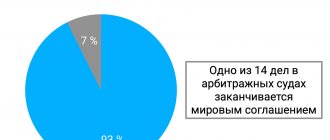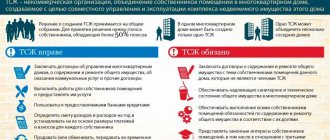What is a judicial authority?
At its core, the judicial authority is not a body or division of the judicial system of the Russian Federation, but a function that they are authorized to perform. There are four authorities in Russia, Law No. 1-FKZ of 1996:
- first;
- appeal;
- cassation;
- supervisory.
Based on the rules of legal proceedings in the Russian Federation, cases must be considered in strict sequence:
- In the first instance on the merits (mandatory).
- In appeal, and then cassation (if the deadlines for filing an appeal are met). If an appeal is not filed, then the possibility of appealing to cassation remains.
- By way of supervision. The assessment of legality is carried out by the Presidium of the RF Armed Forces.
Functions and gradation of courts
Judicial system of the Russian Federation: classification of courts
The Russian judicial system divides courts into two categories:
- The first is the courts of first instance. This is where all cases begin. These include magistrate, district, garrison, regional, arbitration, and military courts in a particular subject.
- The second is appellate, cassation, and supervisory courts, which check the validity and legality of decisions, decrees, and rulings. This is a higher authority.
Note! A decision made in a lower court is challenged in a higher court. For example, in relation to the magistrate's court, the district court is considered to be such. Decisions of district courts are appealed to regional courts, then to regional courts, and so on until the interested party reaches the Supreme Court of the Russian Federation.
Briefly: courts are federal and regional. In the first case, the Supreme Court of the Russian Federation, the Constitutional Court, as well as arbitration courts included in the system of arbitration courts are meant.
The subject category includes world, district, statutory (constitutional) courts of the constituent entities of the Russian Federation. All of them are divided into two instances - the first and second (appeal, cassation).
Types and differences of courts
A person applying to court for the first time needs to clearly distinguish between the concepts of jurisdiction, jurisdiction and instance:
- jurisdiction - the authority of a separate court to consider cases of various types (civil disputes, criminal acts, analysis of disagreements between business entities);
- jurisdiction - the claim must be sent according to the territoriality (in some cases this is only the location of the defendant, and in some cases it is allowed to apply to the plaintiff’s registered address);
- instance - a claim, complaint or presentation can be sent to courts of different jurisdictions if they have the right to perform the function that is necessary for the applicant (consider an appeal, cassation or supervisory complaint).
One and the same judicial body can perform the role of several authorities simultaneously (for example, the Supreme Court of Russia combines four functions at once). In order to understand the powers of different levels in the judicial hierarchy, you need to understand the general essence of each and the differences between them.
Depending on the type of case under consideration, the same body can act as both a court of first instance and an appellate or cassation instance.
How to write a complaint to the Supreme Court (second cassation)
After cassation, without complying with formal requirements, it is impossible to initiate an appeal procedure in the Supreme Court. Therefore, before submitting documents to the Supreme Court, you need to carefully study the criteria for them. Other requests not provided for by procedural legislation should not be contained in the basis of the cassation appeal.
As follows from the articles of the Code of Civil Procedure, the complaint (second cassation) must contain:
- Information about the court considering the appeal (division of the Supreme Court, address)
- Your data and procedural status (full name, address, applicant - defendant or plaintiff)
- Data of other participants in the case (your representatives - a lawyer or lawyer, the other party to the dispute - the plaintiff or defendant, third parties)
- The subject of the dispute, information about the act being appealed and other decisions and determinations adopted in the case.
- Grounds for appeal. In this part of the cassation it is necessary to indicate what the violations are and provide arguments confirming the applicant’s position, i.e. yours. Based on our experience in appeals to the Supreme Court, we recommend that you indicate the sheet numbers of archival materials; it is not recommended to attach copies, since in this case the case will not be retrieved from the archive. We also note that such a characteristic as materiality is evaluative, depends on the judicial discretion and is established in relation to each specific dispute.
- Indications of legal norms and laws that confirm the presence of violations committed in court decisions, appeals or after the first cassation.
- Your requirements are stated at the end of the cassation appeal to the Supreme Court. We will clarify that since the competence of judges at this stage is limited, it is impossible to ask for a re-evaluation of evidence and circumstances.
- Application documents.
Note. You can ask for a new decision or a new trial depending on whether there is a need for further examination of the evidence and re-evaluation of the available data.
First instance
The first instance is the beginning of any legal proceedings. An application for filing a claim or issuing a court order is considered by a judge for:
- circumstances of the case;
- the presence or absence of signs of a crime or offense;
- establishing the guilt of a particular defendant.
Judges review and study evidence, assess the possibility of their procedural use, call witnesses, experts, and other participants in the case.
Important! In various cases, even the Supreme Court of Russia may act as the court of first instance, Art. 2 of Law No. 3-FKZ.
Courts of first instance
Any legal proceedings begin with an appeal to the court of first instance.
It is this court that primarily considers the case and makes a decision on the merits of the received appeal. This level is the main one. The vast majority of civil, administrative and criminal cases in the first instance are cases considered at the level of magistrates and district courts. In the system of arbitration proceedings, they correspond to the courts of the constituent entities of the federation - there are no arbitration courts at the local level. At the same time, procedural legislation also provides for situations where the courts of a higher level are the first instance.
Jurisdiction of civil cases considered in the first instance is determined according to the rules of Chapter 3 of the Code of Civil Procedure of the Russian Federation:
- justices of the peace – Art. 23 Civil Procedure Code;
- district courts - art. 24 Civil Procedure Code;
- military courts - art. 25 Civil Procedure Code;
- court of a subject of the federation – art. 26 Civil Procedure Code;
- Supreme Court – art. 27 Code of Civil Procedure.
The jurisdiction of criminal cases considered in the first instance is determined by Art. 31 Code of Criminal Procedure of the Russian Federation. Magistrates, as a rule, carry out legal proceedings on crimes of minor gravity. District courts are considered the main level for criminal cases. At the level of the courts of the constituent entities of the federation, proceedings are conducted on particularly serious crimes, in cases related to state secrets, as well as in connection with the criminal prosecution of persons with a special status (State Duma deputy, member of the Federation Council, judge). To consider cases of war crimes and crimes committed by military personnel, there is a special system of military courts.
Jurisdiction for administrative cases , which are considered in accordance with the CAS of the Russian Federation (public legal relations), is determined by Chapter 2 of the CAS of the Russian Federation:
- justices of the peace – Art. 17.1 CAS;
- district courts - Art. 19 CAS;
- military courts - Art. 18 CAS;
- court of a subject of the federation – Art. 20 CAS;
- Supreme Court – Art. 21 CAS.
For other administrative cases - all that are considered according to the rules of the Code of Administrative Offenses of the Russian Federation - jurisdiction is established, firstly (not all cases are heard in the courts) and, secondly, jurisdiction. Who exactly is authorized to consider a particular administrative case is determined in accordance with the provisions of Chapters 22-23 of the Code of Administrative Offenses of the Russian Federation. Jurisdiction of cases is established by Art. 23.1 Code of Administrative Offenses of the Russian Federation. This article lists all offenses that are considered by judges, and also determines the jurisdiction of cases for such offenses - magistrates, district, military, and arbitration courts.
The result of the trial in the court of first instance is a definite decision that puts an end to the case. If the participants in the proceedings (its parties) or other interested parties do not agree with the decision made, they have the right to appeal it. This is where the need arises to appeal to the appellate court, and then, possibly, to the cassation court.
Second instance
The second stage of consideration of a dispute is an appeal - a retrial of a case on which a decision has already been made. It is necessary to start an appeal before the decision of the first instance court comes into force (usually this happens within a month).
During an appeal, the court of second instance reconsiders all details and evidence
The procedure for filing an appeal is determined in accordance with the procedural standards of the Russian Federation:
- civil cases - Chapter 39 of the Code of Civil Procedure;
- criminal - Chapter 45.1 of the Code of Criminal Procedure;
- arbitration - Chapter 34 of the Arbitration Procedure Code;
- administrative – Chapter 34 CAS.
In 2021, judicial bodies of general jurisdiction were reformed in terms of the procedure for considering appeals and cassation complaints. In particular, Law No. 1-FKZ of 2011 (Chapter 2.2) introduced the Courts of Appeal of General Jurisdiction. Their competence includes submissions and complaints on disputes lost in the supreme courts of the constituent entities of the federation.
As before, the powers of the appellate court in criminal, civil and criminal proceedings remain the right to:
- reverse the first decision;
- leave it unchanged;
- partially cancel the decision or sentence;
- leave the appeal without consideration (for example, if the deadline for filing a complaint has already passed and the decision has entered into legal force).
Important! During the appeal process, the case is re-examined, with the study of material evidence and details of the case. From October 2021, the newly formed Courts of Appeal can also consider cases based on newly discovered evidence and circumstances.
Competence of the cassation court of general jurisdiction
Court of Cassation of General Jurisdiction:
- considers cases in accordance with the jurisdiction established by federal laws as a court of cassation:
- on complaints and submissions against judicial acts that have entered into legal force;
- due to new or newly discovered circumstances;
- exercises other powers in accordance with federal laws;
- applies to the Constitutional Court of the Russian Federation with a request about the constitutionality of the law to be applied in a particular case.
Third instance
In relation to decisions and sentences that have entered into legal force, cassation proceedings may be initiated. The complainant may skip the appeal process.
Cassation exclusively concerns issues of legality and fairness of the decision made in the courts of first and second instance. Evidence in the case is not examined and participants in the process are not interviewed. Only the conclusions of the court and the correct application of legal norms are studied.
In a cassation appeal you can indicate:
- for an error in the application of a rule of law that had a significant impact on the outcome of the case (with convincing arguments);
- to violate the rights of third parties who have not previously participated in the process.
The Court of Cassation cannot evaluate or rely on circumstances and evidence that were not presented to the trial judge (or during the appeal).
Since 2021, there have been 9 cassation judicial divisions in Russia, Chapter 2.1 of Law No. 1-FKZ of 2011. Their duty is to consider complaints in cases of general jurisdiction through the cassation procedure, as well as on newly presented or discovered circumstances. This reform made it possible to avoid situations where appeal and cassation complaints in one case are considered by the same judicial body.
What it is?
There are only nine of these courts, as judicial authorities, in the entire Russian Federation - one for each judicial cassation district. These institutions are courts of cassation for all federal courts within the general jurisdiction, as well as for all justices of the peace in their region. Cassation courts do not interact with each other - requests are sent only to higher judicial authorities.
Information regarding the location of cassation court institutions by district is publicly available. The procedure for appealing to this judicial body is practically no different from the standard appeal in the judicial system - you only need to file a complaint, the decision of which is within the powers of the cassation court.
Fourth instance
The Supreme Court is the highest authority
The highest and exclusive level of judicial proceedings is considered to be the supervisory authority. By way of supervision, decisions and sentences that have entered into force are considered by the Presidium of the Supreme Court of the Russian Federation. The supervisory function can extend to cases in almost any jurisdiction:
- for criminal cases - in the manner prescribed by Chapter 48.1 of the Code of Criminal Procedure (on sentences passed by the Appeals Board of the Supreme Court, cassation decisions of the Judicial Collegiums in criminal cases and military cases, decisions of the Presidium of the Supreme Court);
- for civil cases - in accordance with Chapter 41.1 of the Code of Civil Procedure (the decisions of the Supreme Court of the Russian Federation are subject to supervision, if the case was considered there initially, the decisions of the Judicial Collegiums of the Supreme Court for civil disputes and military cases, and the Appeals Board of the Supreme Court);
- for arbitration - in the manner described in Chapter 36.1 of the Arbitration Procedure Code (the Presidium of the Supreme Court considers decisions of the Judicial Collegiums adopted in the order of first consideration, appeal or cassation appeal);
- for administrative ones - in accordance with Chapter 36 of the CAS (according to the determinations of the Judicial Collegium for Administrative Offenses, adopted in the initial consideration, by appeal or cassation).
The procedure for considering cases by courts of different instances
Composition and structure
Any of the nine institutions of this nature operating on the territory of the Russian Federation operates according to one principle - the presidium is the highest legal authority, and the judicial panels for cases are divided into three categories:
- in civil cases;
- on administrative matters;
- in criminal cases.
This structure ensures the most efficient division of institution resources between processes of different types. Accordingly, those who apply for cassation should take into account the direction of their case - they can understand in advance which panel will consider it.
Information on the deadlines for filing and considering a cassation appeal, as well as the grounds and rules for submitting it in criminal and civil cases and to an arbitration court, can be found in the articles on our website.
Presidium of the body
The Presidium is a court management body that resolves all internal issues . Members of the presidium are admitted to cases considered by the collegiums only at the last stage, approval of the decision. The composition of the presidium of each cassation court of general jurisdiction is determined by the Plenum of the Supreme Court of the Russian Federation.
This Plenum approves not only the appointment of specific individuals to positions, but also the maximum quantitative composition of the presidium.
Compound
The body consists of the chairman, his deputies and the rest of the judges , who are included in its composition by the right of appointment (the entire composition is approved by the Plenum of the Supreme Court of the Russian Federation). The Chairman has great influence on the process, but in general the Presidium makes decisions collectively.
If the chairman is unable to fulfill his professional duties, he is replaced by deputies appointed in advance. Deputies are acting until a higher authority appoints a new person to this position.
Operating procedure
The Presidium considers everything related to the internal work of the court, as well as its interaction with higher authorities and other judicial bodies. The body is not directly involved in considering cases - only approving decisions already ready for adoption, submitted for consideration by collegiums (civil, administrative and criminal).
Responsibilities of the Presidium:
- final approval of decisions made by the boards;
- regulation of issues regarding the internal work of the judicial apparatus;
- engaged in the study and synthesis of materials on judicial practice, as well as statistics.
As a rule, the presidium deals with the internal affairs of the institution, approving the decisions made as a matter of duty - only after that they enter into legal force. The approval is often of a formal nature and there is no real opposition to the judicial panels.
Judicial boards
In cassation courts of general jurisdiction there are three collegiums - civil, administrative and criminal. It is because of this diversity that courts of this type have their name. Cases initiated by cassation go to the cassation court for the district, regardless of their type - the sorting of cases into boards occurs within the institution .
This order of work ensures maximum structuring of the processing of complaints, eliminates the need to organize separate courts for each type of process, and is generally successful because the number of cases within the competence of cassation courts is several times smaller than that of any other.
The composition of the panels is fully approved by the presidium of each specific court . Despite the fact that judges are attached to their panels, the chairman, in order to more successfully consider a case, can involve a specialist from one panel in the case of another - this happens quite often, since cases rarely have the same focus.
Also, the responsibilities of all boards include the analysis of statistical data collected in the institution and analysis of judicial practice.
Compound
Any of the three panels consists of the chairman and all other judges. The chairman of the board has no deputies . The main task of this official is to regulate the work of the court within his own board, facilitate work with specialists from other boards and prepare decisions for approval by the Presidium.
The formation of a new chairman is discussed within the institution and decided at the level of the Presidium. Any member of the board can become a candidate.
Operating procedure
Collegiums perform the main work in the institution - they consider cases, bringing them to approval by the Presidium if it is within the jurisdiction of this body, and reject cassation if challenging the decision is not within its competence.
A cassation can be rejected for three reasons:
- the cassation was drawn up incorrectly;
- the plaintiff applied to the wrong institution and the representative of the panel considering the request is unable to resolve it;
- The plaintiff applied to an institution not in his region.
If the second can be solved by simply redirecting the request to the right institution, then the first can be corrected even before such a problem arises. A cassation appeal has strict requirements for registration , therefore, without a legal education or skill in drawing up such documents, it is better to contact a lawyer.
We do not recommend completing the documents yourself. Save time - contact our lawyers by phone:
8 (800) 350-14-90
If the complaint is accepted, the board, regardless of its type, begins the review process in approximately the same way:
- The case is being studied for inconsistency between the court decision and the current legislation.
- The request from the plaintiff is studied and compared with the decision.
- The board begins a review of the case; the process may drag on if new circumstances are added that change the essence of the process.
- At the end of the investigation, the result is considered by the chairman of the board and, in the case of a completed process, is submitted for confirmation to the Presidium of the given court.
The adopted decision comes into force in approximately the same time as the decision of an ordinary court - it all depends on the composition of the panel, the complexity and duration of the case, the timely appeal of the plaintiff and the grounds for cassation. The plaintiff needs to be prepared for possible temporary costs.
Features of the functioning of each instance
In the scheme of courts of general jurisdiction, the same structural unit can act as different authorities.
| Judiciary Division | Handle disputes in a quality and orderly manner | ||
| first instance | appeal | cassation review | |
| World judge | On divorce (without children), property disputes (claim value less than 50,000 rubles), issuance of orders up to 500,000 rubles, on administrative violations and criminal offenses (if the maximum penalty is not more than 3 years in prison) | No authority | |
| District Court | Civil non-property and property disputes, criminal cases, inheritance issues and divorces (if there are children), administrative and labor disputes | Reviewing decisions of magistrates | No authority |
| Regional courts, federal subjects, territories, autonomous districts and regions | All civil disputes, cases regarding the preservation of state secrets, some questions about administrative violations | Regarding decisions of district courts on territoriality | Powers are transferred to the Courts of Cassation, Art. 23.2 of Law No. 1-FKZ |
| Supreme Court | Economic disputes between the federal authorities and the bodies of the constituent entities of Russia, as well as the highest government bodies of the Russian Federation | The Appeals Chamber considers decisions made by the Supreme Court of the Russian Federation if the cases were initially considered in one of the Judicial Collegiums of the Supreme Court | In relation to decisions taken by the highest judicial bodies of the constituent entities of the Russian Federation, as well as decisions of other courts, if other methods of appeal have already been exhausted |
Decisions of arbitration courts of first instance go through the process of appeal. For this category of cases, there are their own Arbitration Courts of Appeal (Article 33.1 of Law No. 1-FKZ of 1995), and cassation cases are considered in Arbitration Courts of districts (there are 10 of them throughout Russia, Article 24 of Law No. 1-FKZ of 1995) .
A separate procedure is provided for appealing decisions of arbitration courts.
Order a free legal consultation
How is the composition of the court determined?
The composition of the court is conventionally of two types: the first - which considers civil cases, the second - the apparatus of the judicial body itself, i.e. number of employed employees.
For the parties to the proceedings, it is the composition of the court that is of greatest importance in proceedings in cases in the first or higher instances.
First instance
The consideration of claims and other statements is carried out by a single judge. If we are talking about the protection of electoral rights, a collegial composition of three judges is appointed, one of them is the presiding judge.
Also, the chairman of the court himself may be present at the meetings, but, in addition, his responsibilities include monitoring personnel and organizational issues.
Note! Arbitration cases are also considered by single judges (Article 18 of the Arbitration Procedure Code of the Russian Federation). Collegial consideration is carried out when sending a case for review, challenging regulations, protecting intellectual rights (Article 17 of the Arbitration Procedure Code of the Russian Federation).
Second instance
According to Art. 7 of the Code of Civil Procedure of the Russian Federation, civil cases in the appellate and cassation instances are considered collectively. The panel consists of three judges, one of them is the presiding judge.
Only certain cases are heard individually in the courts of appeal:
- complaints about decisions of magistrates that have not entered into force;
- challenging a decision made through summary proceedings;
- appealing orders, decisions and rulings that have entered into force when appealing to the cassation authority.
Conclusion: in the first instance, cases are considered more often individually, in the second - collegially, with the exception of the above cases when the judge makes a decision independently, without scheduling a meeting or calling the parties.
Civil court decision
Preliminary court hearing in civil proceedings
The procedure for filing a private complaint against a court ruling in administrative proceedings
Lawyer Antonov A.P.
In administrative proceedings, the form for issuing rulings and the procedure for their entry into legal force are more clearly regulated. The court issues a ruling in writing in the form of a protocol ruling or a separate judicial act, including in the form of an electronic document. Determinations are issued in the form of a separate judicial act in cases where the CAS of the Russian Federation provides for the possibility of appealing the determination separately from appealing the court decision; the issue on which the ruling is made is resolved by the court not in a court session; When resolving a complex issue at a court hearing, the court recognizes it is necessary to issue a ruling in the form of a separate judicial act, which is not subject to appeal separately from the appeal of the court decision (Part 3 of Article 198 of the CAS RF). The court ruling, which is issued in the form of a separate judicial act, must indicate the procedure and deadline for appealing it (Part 1 of Article 199 of the CAS RF). The CAS RF clearly states that “the ruling of the court of first instance, which is not subject to appeal separately from the appeal of the court decision, comes into force from the moment this ruling is adopted.” The ruling of the court of first instance, subject to appeal, enters into legal force after the expiration of the period for filing a private complaint, if such a complaint has not been filed, and if it is filed after the court has considered such a complaint on appeal, provided that the appealed ruling is not canceled ( Part 1 of Article 203 CAS RF). The court ruling can be appealed separately from the appeal of the judicial act that ends the consideration of the case, if this is provided for by the CAS RF or if the court ruling prevents the further progress of the administrative case (Part 1 of Article 202, Part 1 of Article 313 of the CAS RF). For example, a ruling refusing to join an administrative case as an administrative co-plaintiff is not subject to independent appeal (Cassation ruling of the Second Cassation Court of General Jurisdiction dated October 21, 2020 No. 88A-22554/2020 in case No. 3a-3878/2020); a court ruling refusing to suspend proceedings in the case (Appeal ruling of the Nizhny Novgorod Regional Court dated May 23, 2018 in case No. 33A-6180/2018); ruling denying admission to participate in the case as a representative of the administrative plaintiff (Appeal ruling of the Moscow City Court dated September 16, 2019 in case No. 33a-4998/2019). Objections to other determinations, in particular determinations on the acceptance of an administrative claim for court proceedings, on the preparation of an administrative case for trial, on the request of evidence, on the postponement of the trial of an administrative case, on the transition to consideration of the case according to the rules of administrative proceedings, may be included in an appeal, submission against a court decision (clause 44 of the Resolution of the Plenum of the Supreme Court of the Russian Federation dated June 11, 2020 N 5 “On the application by courts of the norms of the Code of Administrative Proceedings of the Russian Federation governing proceedings in the court of appeal”, hereinafter referred to as the Resolution of the Plenum of the Supreme Court of the Russian Federation dated 06/11/2020 N 5). The right to appeal judicial acts of the court of first instance is vested in persons participating in the case, persons who were not involved in the administrative case and whose rights and obligations were resolved by the court, their representatives, and legal successors. A private complaint or presentation is filed, as a general rule, within fifteen days from the date of the ruling by the court of first instance, through the court that made the decision. These periods, calculated in days, include only working days (Part 2 of Article 92 of the Code of Arbitration Code of the Russian Federation). Special shortened deadlines for filing a private complaint are provided for in Art. 314 CAS RF. An appeal or presentation received directly by the appellate instance shall be sent to the court that made the decision for further action in accordance with the requirements of Art. 302 CAS RF (Part 1, Article 297 CAS RF). When filing a private complaint, a submission against rulings that end proceedings in an administrative case at the appropriate stage of administrative proceedings, or rulings made by a judge of a trial court before the initiation of administrative proceedings in a court of first instance or appeal (for example, a ruling on the return of an administrative claim , a ruling on the refusal to restore the missed deadline for filing an appeal), the case or the originals of the filed administrative statement of claim, complaint, presentation and documents attached to them together with the case (if any) is sent to the appellate court. When appealing against other rulings of the court, the material compiled on the basis of the complaint or the prosecutor’s presentation, consisting of the original complaint or the prosecutor’s presentation and the appealed court ruling, as well as copies of documents certified by the court necessary for their consideration ( clause 46 of the Resolution of the Plenum of the Supreme Court of the Russian Federation dated June 11, 2020 No. 5). Consideration of a private complaint against a ruling of a court of first instance is carried out without a court hearing, with the exception of consideration of rulings on suspension of proceedings in an administrative case, termination of proceedings in an administrative case, leaving an administrative claim without consideration or refusing to satisfy an application, or a prosecutor’s proposal for review judicial acts on new or newly discovered circumstances (rulings that end administrative proceedings). Taking into account the nature and complexity of the procedural issue being resolved, as well as the arguments of the private complaint, the prosecutor’s presentation, the appellate court may summon the persons participating in the case to the court hearing, notifying them of the time and place of consideration of the private complaint, the prosecutor’s presentation (part 2 and 3 Article 315 CAS RF). In case of cancellation of the ruling of the court of first instance in whole or in part on the basis of a private complaint or the submission of the prosecutor, the appellate court, as a general rule, independently resolves on the merits the procedural issue regarding which the appealed court ruling was made. An exception may be, in particular, questions about the explanation of the judicial act of the court of first instance; on the resumption of proceedings in an administrative case after its suspension; allowed by the court of first instance in an illegal composition of the court, etc. (clause 49 of the Resolution of the Plenum of the Supreme Court of the Russian Federation dated June 11, 2020 N 5).
Sincerely, lawyer Anatoly Antonov, managing partner of the law firm Antonov and Partners.
Still have questions for your lawyer?
Ask them right now here, or call us by phone in Moscow +7 (499) 288-34-32 or in Samara +7 (846) 212-99-71 (24 hours a day), or come to our office for a consultation (by pre-registration)!






